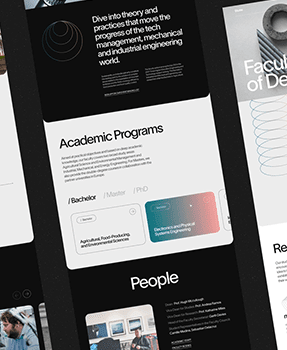





Listed among top-rank
service providers

Top App Developers in USA

Top Blockchain Development Companies in USA

Most-Trusted Android App Development Companies
Unlock the full article with just a tap on the play icon. Let’s dive in!
Mobile apps have become integral to our daily lives, seamlessly connecting us to information, services, and entertainment. As the demand for mobile applications continues to surge, developers face the challenge of creating apps that work seamlessly across platforms like Android and iOS. This is where cross-platform mobile app development comes into play, offering a cost-effective and time-efficient solution.
Choosing the right framework for cross-platform mobile app development solutions is crucial, as it directly impacts the app’s performance, development speed, and user experience. In 2024, two prominent contenders in this space are React Native and Ionic. React Native, backed by Facebook, has gained widespread popularity, while Ionic, rooted in web technologies, has carved its niche with a focus on simplicity and speed.
This article aims to provide a comprehensive and unbiased analysis of React Native and Ionic, helping you make an informed decision for your mobile app development project. We’ll explore their architectures, performance, development speed, user interface capabilities, cross-platform compatibility, community support, and more. By the end, you’ll clearly understand which framework aligns better with your specific needs and project requirements.
React Native is a robust and widely adopted framework that combines the power of JavaScript with the declarative syntax of Reacts. Its architecture allows Cross-Platform Mobile App Development Solutions to build mobile applications using native UI components, ensuring a seamless and performant user experience. This means your Native apps won’t feel like a generic web application wrapped in a mobile shell; instead, they will integrate smoothly with the native look and feel of the respective platforms.
The use of JavaScript and ReactJS knowledge is a significant advantage for developers. If you’re already familiar with these technologies, you can leverage your existing skills to dive into mobile app development. Notable apps like Facebook and Instagram have been built using React Native, showcasing its ability to handle large-scale, high-performance applications.
On the other side, Ionic is a framework that embraces progressive web app development solutions such as HTML, CSS, and JavaScript. It stands out by using Cordova for hybrid app development, allowing hybrid app development agencies to access native device APIs. Ionic excels in simplicity and ease of use, making it an attractive choice for projects where development speed is a top priority.
Ionic’s unique approach leans on web app development techniques to create a single codebase that runs on multiple platforms. Apps like BMW and Uber Eats are testaments to its success, demonstrating that impressive and feature-rich applications can be crafted with Ionic.
Let’s discuss head-to-head comparisons in detail.
One of React Native’s key strengths lies in its ability to render native UI components, ensuring optimal performance. This approach allows your app to fully utilize the device’s capabilities, delivering a smooth and responsive user experience. React Native’s performance is particularly notable in scenarios where complex animations and transitions are crucial for an app’s functionality.
As a hybrid framework, Ionic relies on web technologies and web view to render its UI. While this enables cross-platform compatibility, it may introduce some performance limitations, especially compared to React Native’s native rendering. However, Ionic has made significant strides in improving performance, and for many applications, the difference might not be a dealbreaker.
If speed is a top priority for your project, Ionic has a distinct advantage. It offers a faster development process thanks to its pre-built components and tools. The simplicity of the Ionic framework allows developers to create and iterate on features rapidly. For startups or projects with tight timelines, Ionic can be a game-changer, enabling you to bring your app to market more quickly.
React Native, while powerful, has a steeper learning curve compared to Ionic. This can impact initial development speed, especially for those new to the framework. However, the trade-off is greater flexibility and the ability to fine-tune your app’s performance and behavior. Once you’ve overcome the learning curve, React Native provides a robust development environment that can handle complex and resource-intensive applications.
React Native shines when it comes to achieving a native-like UI. By using native components, your app seamlessly integrates with the underlying platform, providing users with an experience that feels natural. The framework also offers a high level of customization, allowing you to create complex and visually appealing user interfaces. This makes React Native an excellent choice for apps where design and user experience are paramount.
Ionic has made significant strides in improving its UI capabilities. While it might not achieve the same native feel as React Native, it balances cross-platform compatibility and visual appeal. Ionic’s pre-built components make it easy to create clean and modern designs. Ionic provides a solid solution for applications where a consistent look and feel across platforms is essential.
React Native and Ionic are designed to support cross-platform development, allowing you to write code once and deploy it on multiple platforms. React Native’s approach of using native components contributes to a more authentic experience on each platform. With its web-centric approach, Ionic offers broad compatibility but may face some challenges in achieving platform-specific nuances.
React Native benefits from a large and active community, given its association with Facebook. This means many tutorials, documentation, and support resources are readily available. The vast community also contributes to the framework’s ongoing development and improvement. Professional services like The App Founders can tap into a thriving ecosystem, making problem-solving and knowledge-sharing more accessible.
Ionic has cultivated a robust community, fostering collaboration and support among developers. While its community might not be as extensive as React Native’s, it’s vibrant and growing. The availability of tutorials, forums, and documentation ensures that Ionic developers can find solutions to common challenges. The community’s engagement is particularly valuable for those seeking guidance and best practices.
React Native is an open-source framework, making it cost-effective for many projects. However, the potential costs lie in additional tools or plugins that may be required for specific functionalities. The learning curve can be steep, especially for those new to ReactJS or mobile app development. Investing time mastering React Native pays off in the long run, offering unparalleled flexibility and control over your app.
Ionic, too, is open source, which is advantageous for budget-conscious projects. The framework’s simplicity contributes to faster development, potentially saving costs associated with prolonged development timelines. The learning curve is relatively gentler, making it accessible to a broader audience. For projects with tight budgets and quick turnaround requirements, Ionic’s cost-effectiveness and ease of use are compelling factors.
React Native excels in providing a wide range of advanced features. It supports offline functionality, allowing users to access certain features without an internet connection. The framework also integrates well with push notifications, a crucial aspect of modern mobile applications. React Native’s extensibility enables seamless integration with third-party libraries and APIs, empowering developers to implement complex functionalities easily.
Ionic, too, offers advanced features such as offline functionality and push notifications. With its integration of Cordova for accessing native device APIs, Ionic allows developers to tap into the full potential of a mobile device. While React Native might have a slight edge in terms of extensibility, Ionic provides a solid foundation for implementing various advanced features.
React Native continues to evolve, with Facebook consistently investing in its development. The framework benefits from a large and active community, ensuring ongoing support and the emergence of new trends. React Native is well-positioned to adapt to the changing landscape of mobile app development, making it a reliable choice for the future.
Ionic’s focus on simplicity and speed aligns well with the industry’s growing demand for rapid development. As the framework matures, its user-friendly approach may attract a broader audience. Ionic’s commitment to staying relevant and competitive positions it as a framework with future potential.
Consider React Native for projects where a native-like user interface, high performance, and extensive customization are essential. It’s an excellent choice for apps with complex animations, intricate user interfaces, and a need for optimal performance. React Native is well-suited for large-scale applications where the investment in learning the framework pays off over time.
Choose Ionic for projects focusing on simplicity, speed, and broad cross-platform compatibility. It’s ideal for startups or projects with limited resources aiming to reach a wide audience quickly. Ionic is well-suited for applications that don’t require highly customized native interfaces but prioritize a consistent look and feel across platforms.
In the ever-changing world of making phone apps, picking the best framework is super important for your project to do well. We’ve looked at React Native and Ionic, and each has strengths and things to consider. Review everything again and help you decide what’s best for you.

Satisfied
Customers
Work hours
Work hours
customer
retention rate
All company logos and trademarks appearing on our website are the property of their respective owners. We are not affiliated, associated, endorsed by, or in any way officially connected with these companies or their trademarks. The use of these logos and trademarks does not imply any endorsement, affiliation, or relationship between us and the respective companies. We solely use these logos and trademarks for identification purposes only. All information and content provided on our website is for informational purposes only and should not be construed as professional advice. We do not guarantee the accuracy or completeness of any information provided on our website. We are not responsible for any errors or omissions, or for the results obtained from the use of this information. Any reliance you place on such information is strictly at your own risk.